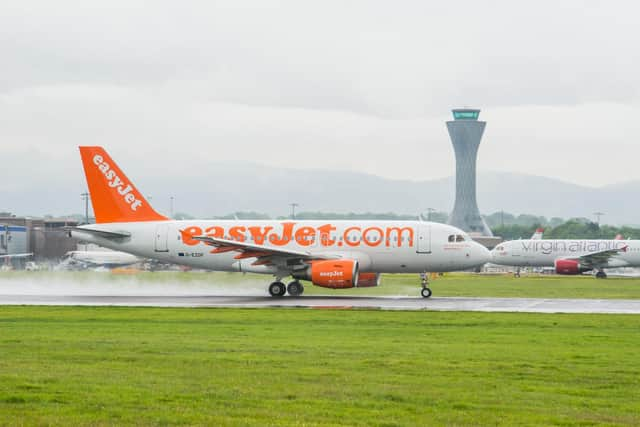Air travel's post-Covid crisis: Here's why airlines are struggling to cope as demand for flights returns – Alastair Dalton
The industry has bounced back after every previous major jolt, from 9/11 to an Icelandic volcano erupting – and that’s the way it’s going again as we emerge from the Covid pandemic.
However, this time, while recovery took longer than expected to start because of prolonged travel restrictions, for airlines, it’s now taking off rather more steeply than expected.
Advertisement
Hide AdAdvertisement
Hide AdEdinburgh Airport – Scotland’s busiest – told me it was slightly taken aback to have handled as many as 931,522 passengers last month, well on its way back to the 1.26 million in pre-Covid April 2019 and a spectacular increase on just 32,628 a year ago.


Glasgow’s latest available figures, for March, show they have also rocketed, from 22,221 to 425,551 in 12 months.
It’s not surprising given the widely predicted pent-up demand which has built up since many people’s holidays were cancelled by the virus in 2020 and 2021.
However, the irony is that, after airlines and airports struggled to cope with near-instant downsizing at the start of the pandemic, faced now with the rush to travel again, the aviation industry is under huge pressure of the opposite kind – how to find enough staff to meet demand.
As one industry source told me: “The challenge has morphed from an abject lack of demand to an inability to cope with demand.”
The problem is manifesting itself in new and unexpected ways, such as supply problems at airline caterer dnata forcing Easyjet and TUI to advise their passengers to bring food with them or buy it at the airport because of food and drink shortages on board.
But even airport shops have been hit, some forced to stay shut for part of the day.
Last week, a New York-bound Virgin Atlantic flight had to turn back to Heathrow because one of its pilots had not completed their final company flying assessment.
Advertisement
Hide AdAdvertisement
Hide AdEasyjet, Scotland’s biggest airline, is tackling its own staff shortage by removing six seats from each of the 60 aircraft in its UK fleet so the 150 seats left meet Civil Aviation Authority regulations enabling it to reduce cabin crew to three – one per 50 seats.
I’m told that the airlines’ handling agents, such as those who deal with your checked-in luggage, are also experiencing problems, leading to longer waits at baggage reclaim.
I can’t say I noticed after a flight back to Edinburgh from Italy last month – but that’s perhaps because of the long queue at passport control.
Insiders tell me the problem is down to a variety of factors – the exodus from the industry after the pandemic lockdowns grounded most flights, aviation no longer being seen as secure employment as a result, enduring Covid fears about working in proximity to large numbers of people, and delays to the security vetting required for airport jobs.
That doesn’t bode well as the summer flight season gets into full swing.
On the upside, the likely continuing underlying growth in at least the leisure market is cause for optimism for those within the industry.
But the acid test will come at the end of June when the schools break up and airports steel themselves for their busiest days of the year.
Comments
Want to join the conversation? Please or to comment on this article.
